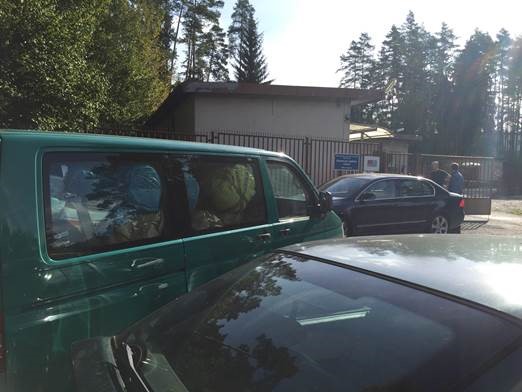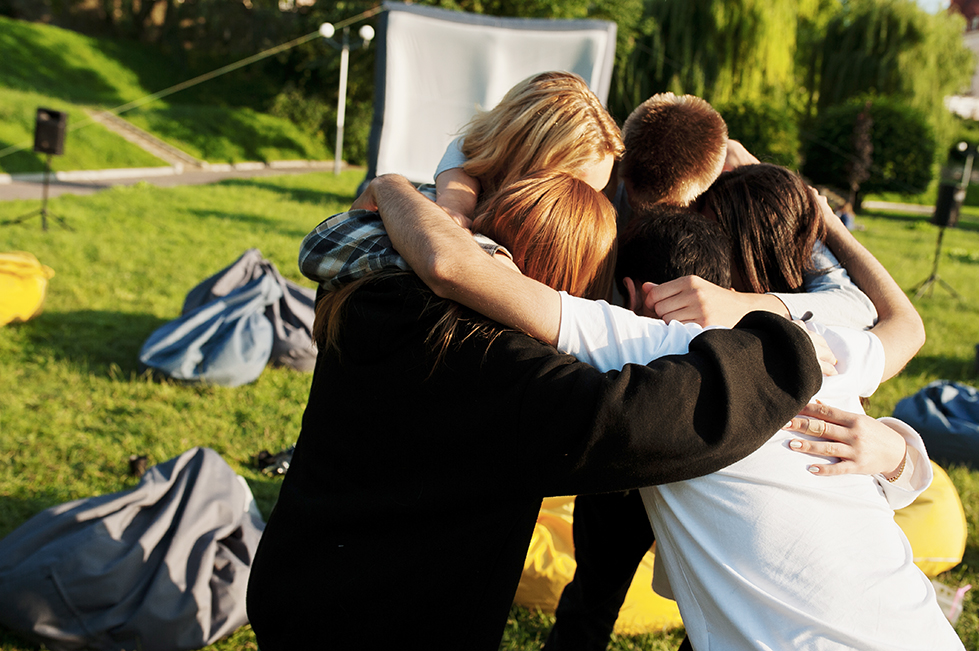
Ministry Updates
Worse than Prison: Refugees in Czech Republic Detained
October 29, 2015
by admin

Sasha Flek is the pastor of TaCesta Church in Prague, where he serves with TEAM workers. Today, Pastor Flek shares his church’s reaction and response to the influx of refugees in Czech Republic, a country currently under scrutiny for violating the human rights of migrants.
As critical needs grow in the global refugee crisis, TEAM missionaries continue to partner with the local church to welcome the nations arriving on their doorsteps. This month, we are sharing these testimonies and hope you will follow along on TEAM’s social media and blog.
For some refugees, Czech Republic is just a train stop on the way to asylum. Pastor Sasha Flek, 47, explains that many migrants travel through Prague as they press on to Germany, the nation accepting the highest number of refugees in the European Union.
However, migrants in Prague are not treated with the same warmth, according to Flek. Refugees caught traveling within Czech Republic have been intercepted by authorities and involuntarily detained in camps. Flek estimates that 1,000–1,200 men, women, and children are currently locked up.
“The measures are very stern,” Flek reports. “Basically, long story short, every person crossing the borders without [a Czech visa] … [is] detained in a detention camp, which is basically a more decent concentration camp. You know, nobody is getting killed, they have food three times a day, but they are locked behind barb wire. … Many of them live in, just like, these little, small containers. The conditions are inhuman, basically.”
Migrants are also required to pay nearly $10 a day for their involuntary stay at the camp. “That doesn’t sound like a lot of money, but … it is good money here in the Czech Republic still,” says Flek. “You could actually stay in a hostel for that money.”
While Flek reports widespread anti-refugee sentiments at the state and individual levels, he remains outraged at the refugee detainment. “This is a scandalous situation what is happening here—totally inhumane and against all the international laws against treating refugees. It’s crazy. It’s not a crime, even in this country, to cross the borders if you do not have the documents. … It’s not a criminal act. But they are detained in conditions that are worse than prison.” He continues, “What’s worse … is [in prison] you know how long you are going to be there and why you are there, and these people don’t know either.”
Last week the UN High Commissioner for Human Rights, called refugee detainment a violation of human rights, stating that “international law is quite clear that immigrant detention must be strictly a measure of last resort,” and detaining children is “not justifiable.”
In a statement, however, the Czech government called these camps legal and said it planned to improve conditions inside the facilities and open up new ones.
Flek regards the detainment as “a bureaucratic crisis” because refugees are not given clear information regarding the terms of their detainment. “They are deprived of information,” Flek says. “They get all the paperwork … in Czech. They do not understand why they are locked in, what’s happening, how long will stay. … Usually, they stay in one or two or three months there.” After as long as 90 days, the refugees as released.
Flek reports that even with widespread anti-refugee sentiments, there is still a Czech movement to support the migrants: “There [are] a lot of good-willed people, [who] are trying to help.” Flek says volunteers wait at train stations to help travelers with food and water, lodging or a train ticket to their next stop. However, they can do little else, because volunteers are not allowed at the detainment camps.

The community rallies to provide essential items for refugees. Photo by Sasha Flek
Even so, Flek and two other evangelical pastors contacted the facility closest to Prague and found an open door. “We’ve been there three times now,” he says. “It’s small teams. Only four to five people can go in, and so we try to talk to [the refugees], encourage them, tell them they’re going to be released.” The group brings donated items for children and clothing essentials for those who arrived only with the clothes on their backs.

Flek’s team delivers a packed van of donations to detainment camp. Photo by Sasha Flek
When Flek thinks about his motivation for ministry among refugees, his conclusion is simple. “Jesus was a refugee as a child … in Egypt.” Flek is determined to continue to be a voice for justice, remembering a consequence of past silence: “We can’t just watch it happening. … In, like, the 1930’s in Germany, the church didn’t do a lot on one hand, and then there people who tried to be prophetic voice and do something. We need to do something before it’s too late.”

